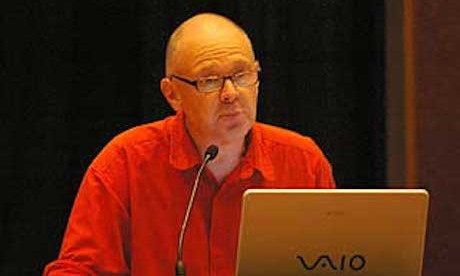While some groups still believe that people infected with HIV should be stigmatised as a deterrent, the majority view at this month’s International AIDS Conference in Melbourne is that victims and the social groups to which they belong must be empowered.
The media is being encouraged to listen to stories such as Sarah’s:
‘As a young woman, I was 21 when I was diagnosed, and it’s that, it takes away your whole impression of what your life will be like. … And social stigma as well.
‘It’s really hard, like to be a young woman diagnosed, there’s no education about it, you don’t know how people are going to react to you. It’s really scary, it’s really scary.’
Religious groups, school teachers, and the media can all choose to be part of the problem, or part of the solution, a source of fear or hope.
A few weeks before the conference, a health services practitioner in an eastern Victorian town reported that he or she was HIV positive.
One media outlet played the fear card when it quoted a patient: ‘[I felt] pretty sick actually, very sick in the stomach’.
Meanwhile the health worker had had the psychological strength to report his or her HIV positive status to authorities.
This enabled them to take proper precautions, and it was therefore unlikely that any patients would contract the virus.
If he or she had been been overcome by fear or shame, it is doubtful the alarm would have been raised, and the population would have been placed at greater risk. Continue reading
Source
- Michael Mullins in Eureka Street
Michael Mullins is editor of Eureka Street
Additional readingNews category: Analysis and Comment.




